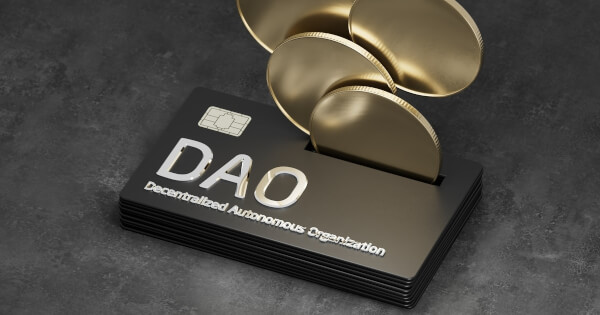Chainalysis Finds Ownerships of Web3 DAOs Are Not Actually Decentralized
Nicholas Otieno Jun 30, 2022 02:00
Chainalysis research study shows that most DAOs are not actually decentralized as they are intended to be, instead, they are normally controlled by a few founder members. In fact, they are designed to prevent an accumulation of power by a few members.

Chainalysis published a research study showing that although decentralized autonomous organizations (DAOs) have emerged as the future of decentralized corporate governance, there have been several weaknesses in their functioning.

According to the study, DAOs form the cornerstone of many blockchain and Web3 projects. Internet-native and blockchain-based, DAOs are intended to offer a new, democratized management structure for businesses, projects, and communities, in which any member can vote on organizational decisions just by buying into the project.
Concentrated Voting Power
However, the latest report by Chainalysis indicated although the process in which DAOs work is normally described as a way to decentralize power, ownerships of DAOs are highly concentrated.
Chainalysis analyzed the functioning of ten major DAO projects and found some clear details that DAOs are not as decentralized as intended to be. The voting power in DAOs has been largely concentrated, the study revealed.
On average, less than 1% of all the members have accumulated more than 90% of all the voting power. In other words, less than 1% of all members in major DAOs have 90% voting power.
This means that a high amount of power has been concentrated in the hands of a selected few founder members, an issue that DAOs were supposed to solve. This is an undemocratic scenario whereby a few individuals (about 1% of all token holders) could outvote any decision of the remaining 99% holders.
Apart from that, the report also noted that the high requirements on users proposing a vote also go against the principle of decentralization.
After analyzing ten major DAOs’ governance structures, Chainalysis found that: 1) A user must hold between 0.1% and 1% of the outstanding token supply to create a proposal, and 2) A user must hold between 1% and 4% to pass it. Therefore, proposing a vote becomes a barrier for the majority of users.
The Chainalysis report also pointed out another anomaly regarding the functioning of DAOs.
The study identified that if too many holders create a proposal, then the average proposal’s quality may fall, and the DAO may be riddled with governance spam. But if too few holders create a proposal, the community may feel that “decentralized governance” rings false. This is another area that DAOs are yet to address.
DeFi Boosting DAOs
Besides looking at the voting power within DAOs, Chainalysis also noted DAOs span a range of projects and services in Web3. The study shows that DeFi-related DAOs have a lead ahead of other categories such as venture capital, infrastructure, and NFTs, which have relatively much fewer on-chain treasures than DeFi protocols. The report shows that 83% of all DAO treasury value originates from the DeFi landscape.
The report further disclosed that only 17.9% of DAO treasury funds come from centralized services. This means the remaining 82.1% are derived from decentralized platforms, suggesting that DeFi protocols are highly involved with DAOs.
Image source: Shutterstock.jpg)